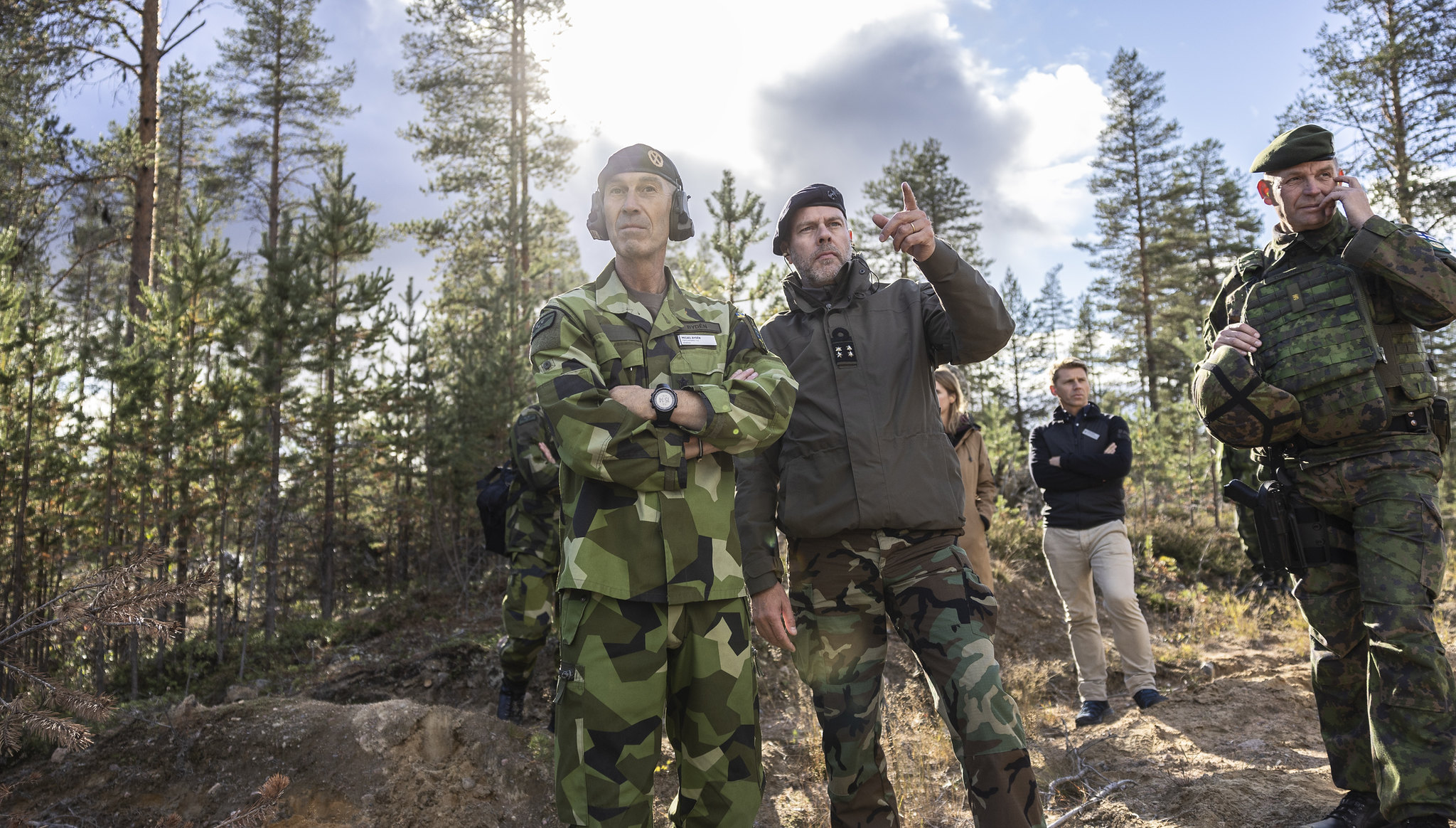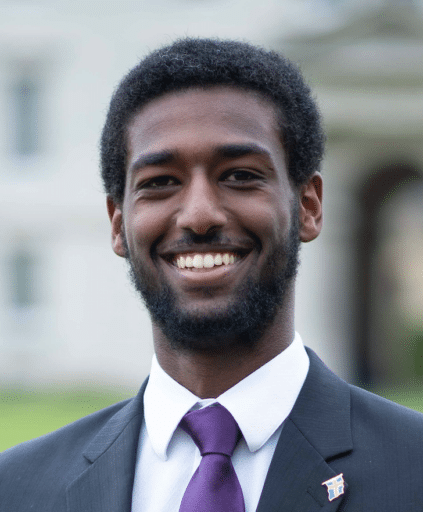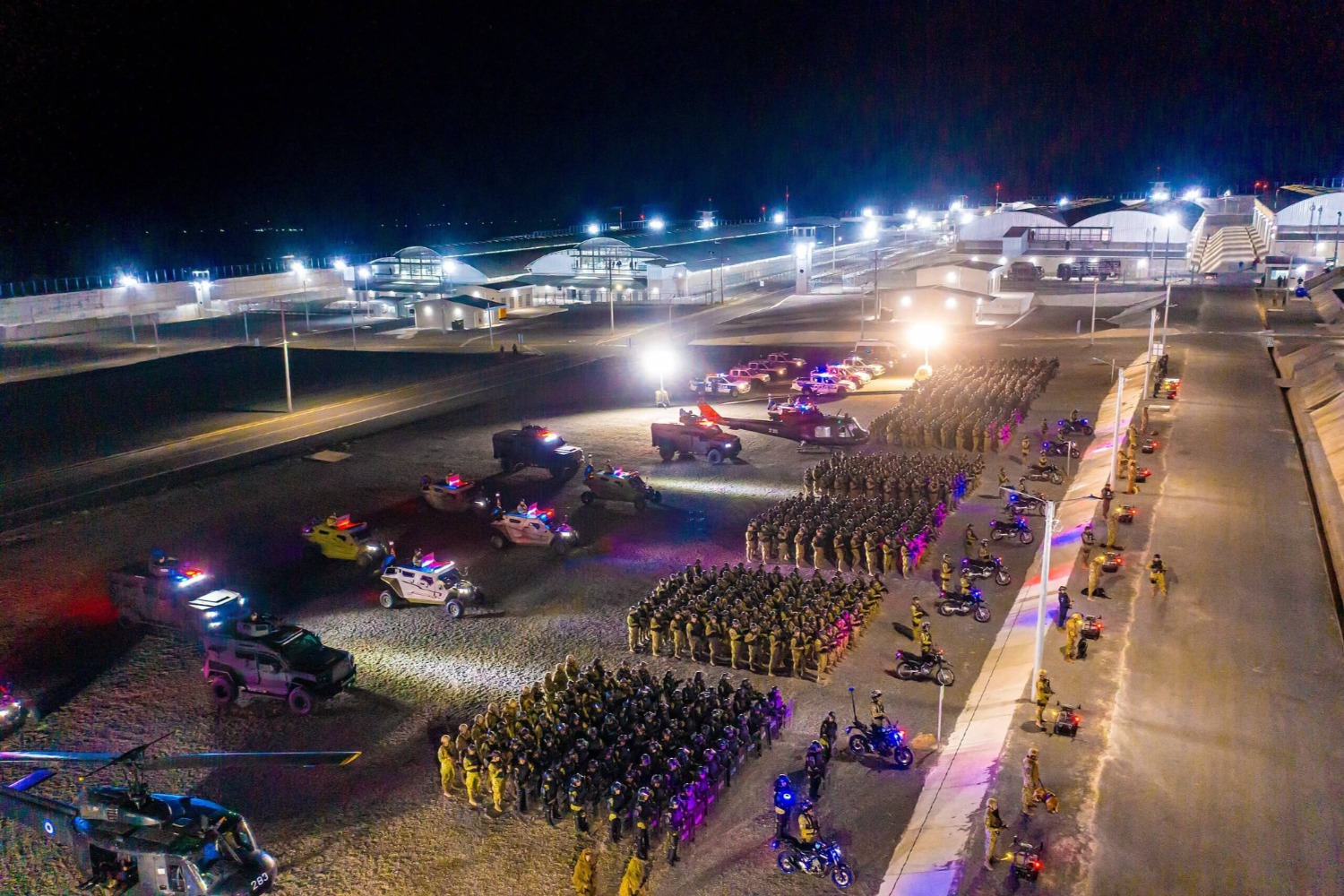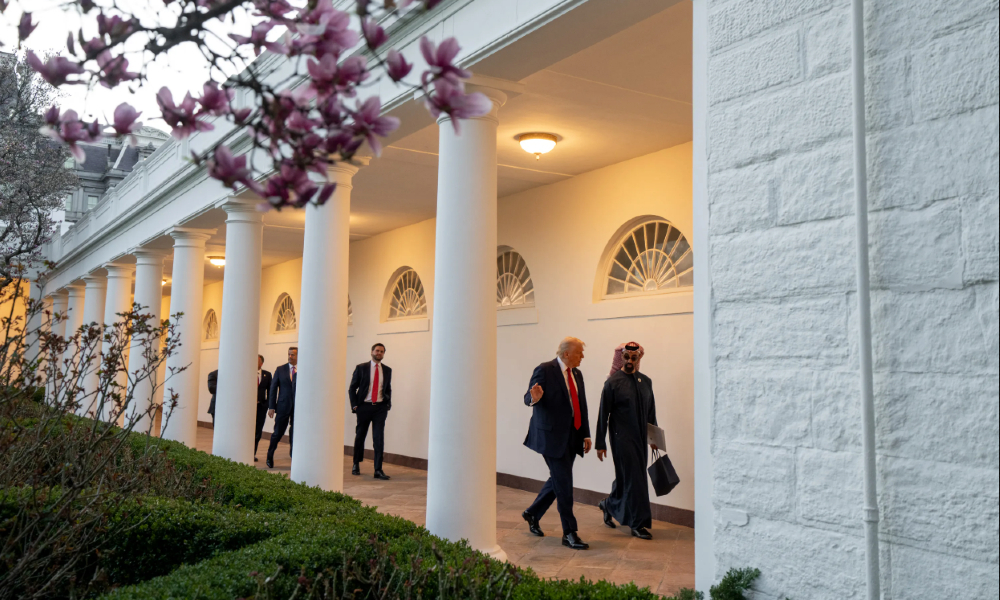Sweden’s Challenging Road to NATO Membership
Despite widespread support for a record-fast accession into NATO, Sweden’s path to membership has been slow and contentious.

Published by The Lawfare Institute
in Cooperation With

Contrary to widespread belief, Sweden has not been neutral since at least its accession to the European Union in 1995, if not earlier. Unlike Austria or Switzerland, the country does not have constitutionally mandated neutrality. Yet 2022 bore witness to a historic reversal of Sweden’s alliansfrihet (military nonalignment). Sweden’s decision to pursue NATO membership did not result in a quick accession process: Sweden has been under pressure to adapt its legal system far beyond what it expected before formally applying, and Turkish opposition has forced Sweden to recalibrate its foreign policy.
Following the outbreak of the war in Ukraine on Feb. 24, the Swedish government of then-Prime Minister Magdalena Andersson pursued a cautious approach. Her party, the Social Democrats, has historically been the party of nonalignment—with government ministers ruling out NATO membership as recently as the autumn of 2021. Nevertheless, within the first few weeks of the war, the government took radical steps, such as lifting its ban on exporting weapons to active war zones, marking the first time this has happened since 1939.
By mid-April, for the first time ever, more Swedes supported NATO membership than opposed it. Nevertheless, a majority was lacking on both sides of the debate. And a crucial development affecting the debate was happening in Finland. For decades, an implicit understanding has existed on both sides of the Gulf of Bothnia that should either Finland or Sweden want to join NATO, it should be in conjunction with the other. Increasingly, this understanding was being used as a justification within domestic Swedish political discourse, such as by the Sweden Democrats, who made their support for NATO membership conditional on Finland applying, despite the fact that the party itself had opposed Sweden’s host nation agreement with NATO in 2016. By mid-May, political momentum was such that there was now broad parliamentary support for NATO membership from all parties except the Left Party and the Greens.
Government officials spoke of a record-fast accession into NATO, with the Madrid Summit in June 2022 slated as a possible entry date. Media coverage at the time of the announcement was similarly optimistic about a rapid entry into the alliance. This optimism, however, was misplaced.
Turkish Resistance
Despite the initially hopeful mood, it became clear early on that the road to membership would be a bumpy one. On May 13, five days prior to Sweden’s formal application for NATO membership, Turkish President Recep Tayyip Erdoğan said that he opposed allowing Sweden and Finland to join, describing the two countries as “home to many terrorist organisations.” At the core of the dispute was the willingness of both Nordic countries, though primarily Sweden, to host groups that the Turkish government views as terrorist threats. These include Kurdish groups as well as members of the Gülen movement (called by Ankara the Fethullah Terrorist Organisation, or FETÖ), which the Turkish government accuses of being behind the failed 2016 coup attempt. The central demand by the Turkish government has been the extradition of wanted individuals living in Sweden and Finland.
At the Madrid Summit on June 28, Sweden—along with Finland and Turkey—signed a trilateral memorandum, which resulted in Turkey lifting its opposition to the advancement of the application process while still withholding ratification. The memorandum itself is a vaguely worded document, with “concrete steps” such as “Finland and Sweden will address Turkiye’s pending deportation or extradition requests of terror suspects expeditiously and thoroughly” and a commitment by the three countries “to fight disinformation, and prevent their domestic laws from being abused for the benefit or promotion of terrorist organisations.” Lacking in the memorandum were any exact metrics, such as a list of wanted people, on which to base success.
On Dec. 2, Sweden did extradite an individual wanted by Turkish authorities. Mahmut Tat fled to Sweden and sought asylum there in 2015 following a Turkish court sentencing him to a nearly seven-year prison stint. According to Turkish officials, Tat was a member of the proscribed Kurdistan Workers’ Party (Partiya Karkerên Kurdistanê, PKK), which is designated as a terrorist organization in both Turkey and Sweden. According to Swedish Migration Minister Maria Malmer Stenergard, however, the government did not make the decision to deport Tat, since it has no say over asylum decisions. Instead, it was the Migration Agency’s decision that rejected Tat’s asylum application in 2021.
A stumbling block for Sweden’s efforts to placate Turkish demands is the former’s independent judiciary, which prevents the government from guaranteeing the extradition of any given individual through legal routes. Rather, the government can make a determination on deportation or extradition, but it is subject to judicial review should the person appeal the decision.
On Dec. 19, the Swedish Supreme Court blocked the extradition of Bülent Keneş, a Turkish journalist living and working in Sweden. In his home country, he is suspected of having participated in the failed 2016 coup attempt and was even singled out and referred to as a terrorist by Erdoğan during a press conference with the Swedish prime minister in November. The court gave several reasons for blocking the extradition, such as the charges not constituting crimes in Sweden and the “risk of persecution based on this person’s political beliefs.” Turkish Foreign Minister Mevlüt Çavuşoğlu called the court’s decision a “very negative” development and prompted Sweden’s new foreign minister, Tobias Billström, to travel to Ankara a few days later. While Billström asserted that Sweden has “initiated steps on every paragraph” of the trilateral memorandum, Çavuşoğlu was unconvinced and said that “the denial of extradition of Kenes has intoxicated this atmosphere.” Çavuşoğlu went even further to say, in regard to Sweden’s commitments, “We are not even halfway there, we are just at the beginning.” On Dec. 22, following a separate Supreme Court ruling, the Swedish government rejected Turkey’s extradition request of an additional four men who are allegedly part of the Gülen movement and have been accused of espionage and terrorism.
Domestically, Ankara’s demands have had a destabilizing effect on Swedish politics despite overwhelming parliamentary support for NATO membership. In June, Turkey’s demands contributed indirectly to the risk of the Swedish government collapsing. The Sweden Democrats, who frequently bill themselves as the party of law and order and as tough on crime, introduced a motion of no confidence against Justice Minister Morgan Johansson over the issue of Sweden’s increasing violent crime rate. In response, Prime Minister Andersson announced that the whole government would resign if the motion succeeded. This was a major gamble since the Social Democrats were governing as a minority government and the opposition was only one vote short of getting the motion passed. In the center of the drama was Amineh Kakabaveh, an independent member of parliament of Iranian-Kurdish origin whom Erdoğan has referred to as a terrorist and whose extradition the Turkish government reportedly requested.
Initially, Kakabaveh was publicly noncommittal about the motion, having been critical of the government’s willingness to negotiate with Turkey on the issue of Kurds. Ultimately, she abstained from the motion, which failed to pass by a single vote, in exchange for the governing Social Democrats keeping their November 2021 agreement with Kakabeveh “to deepen their cooperation with the PYD [Partiya Yekîtiya Demokrat]” and continue their support for autonomy in northeastern Syria. Despite this, following the electoral loss of the Social Democrats in September 2022, the new right-wing government distanced itself from the PYD and the predominantly Kurdish militia, the YPG (Yekîneyên Parastina Gel). According to the Turkish government, the Syrian-based PYD is an extension of the Turkey-based PKK, which is designated as a terrorist organization in both Turkey and Sweden. Sweden’s new foreign minister, Tobias Billström, justified the decision by mirroring the Turkish position, arguing that “[t]here is too close a connection between these [Syrian Kurdish] organizations and the PKK … for it to be good for the relationship between us and Turkey.”
Prior to losing power, the Andersson government implemented additional policy changes in order to accommodate Turkey. Most notable was the lifting of the arms export ban, which was introduced in 2019 following Turkey’s invasion of northern Syria. The new government of Prime Minister Ulf Kristersson has continued to push for Sweden’s quick accession. Kristersson’s first foreign trip upon taking office was to Ankara. Despite the trip, Turkey’s position remained the same. Some observers believe that Sweden shouldn’t expect any changes until at least this summer. Bitte Hammargren, a Middle East expert at the Swedish Institute of International Affairs, believes that Sweden ought to wait out the Turkish presidential election, scheduled for June 18, arguing that Erdoğan has no incentive to let Sweden into NATO, as he wants to maintain his image as a strong leader going into the elections.
The Swedish government’s desperation to join NATO at any cost has reinforced the power imbalance between Ankara and Stockholm. While much of the focus has been on Turkish extradition demands, little has been made of extradition requests in the opposite direction. In late November, it was revealed that approximately 10 people wanted by Sweden on criminal charges were living freely in Turkey. According to Turkish crime reporter Timur Soykan, Turkey’s weak economy makes it vulnerable and attractive to international criminals. Additionally, the country has a citizenship by investment program, in which citizenship can be acquired through the purchase of real estate with a value of at least $400,000. Turkey, like Sweden, does not extradite its own citizens, and the two countries lack an extradition agreement. The current discussions on extraditions center largely on the extradition of Turkish citizens resident in Sweden. Erdoğan’s spokesperson, Ibrahim Kalin, rejects the allegations that Turkey has become a safe haven for Swedish criminals, calling them “baseless.” Regardless of the accuracy of the claims, Swedish officials have expressed frustration at their inability to extradite those wanted in Sweden and they have little leverage to do so.
The desire to join NATO has also made the Swedish government far less willing to publicly criticize the Turkish government when it comes to military action. The stated reason for wanting to join NATO was the danger posed by Russia’s willingness to invade its neighbor. Meanwhile, throughout Sweden’s application process, Turkey has repeatedly threatened to invade its southern neighbor Syria and has carried out airstrikes both there and in Iraq. By contrast, the Swedish government publicly condemned the Turkish government in 2019 following Turkey’s incursion into Syria, which was the basis for the arms embargo in the first place.
This power imbalance has resulted in the Swedish government conceding that it is unable to fulfill Turkish demands. At a defense conference on Jan. 8, Kristersson admitted that Turkish officials “say that they want things that we can’t and won’t give them.” Despite this admission (though later partially walked back as a “misunderstanding”) and Ankara’s continued resistance, Kristersson remains convinced that Turkey will ultimately lift its veto despite Sweden’s inability to meet all of Turkey’s demands. While a clear majority of the Swedish population now supports NATO membership, an even larger percentage (79 percent) is opposed to changing Swedish laws in order to appease Turkey, with a mere 10 percent prioritizing a rapid entry into NATO even if it means accepting compromises. By stating that the decision now “lies with Turkey,” Kristersson may be trying to shift the burden of accession.
This imbalance has resulted in even more tension between the two countries in recent weeks. On Jan. 12, a Kurdish solidarity group erected an Erdoğan effigy that was hanging upside down outside of Stockholm City Hall, in reference to Italian dictator Benito Mussolini’s fate at the end of World War II. Though the Swedish government denounced the act—with Kristersson describing it as an “act of sabotage” intended to undermine Sweden’s application to NATO—the Turkish government was not satisfied. Shortly afterward, the Turkish government took a series of actions, including summoning the Swedish ambassador, launching a probe into the incident, and disinviting the Swedish Speaker of the Parliament Andreas Norlén from his scheduled visit to Turkey’s Grand National Assembly to meet his Turkish counterpart. In response, Norlén said that he could “understand” the Turkish reaction. Despite the Swedish government’s condemnation of the protest, Çavuşoğlu said that this was insufficient and that Sweden “cannot escape its responsibilities” merely through denunciation.
Turkey’s tough line toward Sweden has occurred at a time when it has pursued a policy of diplomatic thawing in its own region. The renormalization of relations has occurred with several countries despite major disagreements in the past. Relations with Egypt had deteriorated due to Ankara and Cairo supporting opposing sides of the ongoing Second Libyan Civil War as well as growing maritime tension, but Erdoğan and Egyptian President Abdel Fattah al-Sisi pledged to improve ties after shaking hands in Qatar in November. Meanwhile, Erdoğan and Saudi Arabia’s Crown Prince Mohammed bin Salman visited each other’s countries last year—in a bid to overcome the strained relationship that emerged following the killing of the journalist Jamal Khashoggi in the Saudi consulate in Istanbul—with one senior Turkish official predicting that “a new era will begin,” following the meetings. Even with Syrian President Bashar al-Assad, whose ouster Turkey had pushed for by supporting various rebel groups and whom Erdoğan accused of committing crimes comparable to those of the Islamic State, the tune has begun to change. On Dec. 15, Erdoğan called for a tripartite meeting with Assad and Russian President Vladimir Putin. A meeting of their respective defense ministers took place in Moscow on Dec. 26.
So far, the Turkish government seems to be impervious to external pressure. NATO Secretary General Jens Stoltenberg and U.S. Secretary of State Antony Blinken have both publicly called for Sweden and Finland to be let in soon, yet Turkey has refused to budge. Ankara’s ability to pursue an independent foreign policy that does not fully conform either to Washington or to Brussels is nothing new. In 2017, the Turkish government went ahead and purchased Russian S-400 missiles despite the threat, and subsequent imposition, of sanctions by the United States. More recently, while publicly condemning Russia’s invasion of Ukraine, Turkey has refused to join Western sanctions and has continued to work closely with the Russian government on a range of issues, including security cooperation and trade, unlike almost all of its treaty allies. And, if Sweden gains entry to NATO, Turkey’s relationship with Russia is likely to be a point of contention between Stockholm and Ankara, at least for the foreseeable future.
External Ramifications
While much of the focus has been on Turkey’s opposition to allowing Sweden and Finland into NATO so far, it is not the only country not to ratify their admission. But Hungary, the other outlier within the alliance, has taken a far more muted stance. The Hungarian government has insisted repeatedly that it will ratify both applications but has quietly delayed the process on several occasions. In July, shortly after the trilateral memorandum of understanding was signed in Madrid, Hungarian Foreign Minister Péter Szijjártó introduced bills into parliament on the membership bids. Following the start of the new parliamentary year, opposition member of parliament Bertalan Tóth proposed a motion to make Oct. 4 the date to vote on the matter, only for the governing party Fidesz to vote it down. Subsequently, the parliament’s press department said that it put the matter on the parliamentary agenda, but without a fixed date. On Oct. 22, Minister Gergely Gulyás, who serves as Prime Minister Viktor Orbán’s chief of staff, announced that ratification would take place by mid-December. A month later, on Nov. 24, however, Orbán delayed it once more, stating that ratification would happen in 2023.
This mirrors Turkey’s course of action leading up to the formal announcement by Sweden and Finland that they were applying. It is possible that the Hungarian government is waiting to see what the Turkish government will do. Should Turkey vote to allow the NATO expansion to occur, Hungary will be in a much stronger position to demand concessions as the sole holdout. Should Turkey veto the bids, Hungary will have avoided any direct and overt confrontation over a matter that would have ultimately been rendered irrelevant.
The Hungarian government has been at odds with the European Union, whose members make up the bulk of NATO member states. Clashes have occurred on numerous topics, such as on refugee migration and rule of law disputes, with the most recent subject being the conflict in Ukraine. On Dec. 6, Hungarian diplomats opposed an 18 billion euro loan package to Ukraine, arguing that financial support ought to be on a bilateral basis instead, though the EU ultimately reached a deal with Hungary following an agreement that the Hungarian government would have flexibility over how to spend EU recovery funds. While a Turkish objection renders the question of NATO’s Nordic expansion a mere NATO question, a potential Hungarian opposition could likely blur the lines between the EU and NATO with added complications for Sweden, especially given that Sweden holds the EU presidency during the first half of 2023.
Meanwhile, Turkey’s opposition has been aimed largely at Sweden but is affecting Finland’s bid as well. On numerous occasions, Finnish Prime Minister Sanna Marin has affirmed that the two Nordic countries are joining “hand in hand” and have maintained a united front since the initial application in May. At times, Ankara has signaled its willingness to consider the applications separately; however, Finland and Sweden have pushed back against this. In a press conference with her new Swedish counterpart, Marin emphasized that “it’s very important that Finland and Sweden will join NATO simultaneously.” Should Turkey definitively veto Swedish membership, it would effectively sound the death knell on Finnish membership, unless Helsinki completely flips its position.
A failure by the U.S. to ensure Swedish and Finnish membership in NATO would be a sign of the United States’ continued diminishing influence in the Middle East. No U.S. ally in that region has implemented sanctions against the Russian Federation, with some even increasing cooperation with Moscow since Feb. 24. Despite U.S. President Joe Biden’s visit to Saudi Arabia in the summer, the country has continued to drift further away from Washington, working with Russia as part of OPEC+ by cutting oil production and giving China’s President Xi Jinping a lavish red carpet reception followed by the signing of numerous economic deals. Even Israel has been reluctant to fully align with the U.S., having refused to provide Iron Dome air defense to Ukraine and continuing to balance its relationships with Washington, Beijing, and Moscow. Continued Turkish refusal to welcome in the two Nordic countries has direct implications for Europe but also indirectly signals the limits of U.S. power in the Middle East.
Even if Sweden does not join NATO, it will be difficult to turn back the clock for Stockholm’s diplomats. The country’s reputation of nonalignment has allowed it to play an outsized role internationally. In recent years, Sweden has been the protecting power for the U.S. and Australia in North Korea, where it has helped facilitate the release of Western prisoners, while hosting peace talks that have resulted in a temporary cease-fire in Yemen. Though some NATO member states continue to play diplomatically significant roles, such as Norway in Colombia or Turkey in Ukraine, the Swedish diplomatic corps will be hard pressed to regain the prestige across frontlines and geopolitical divides that it once had.





